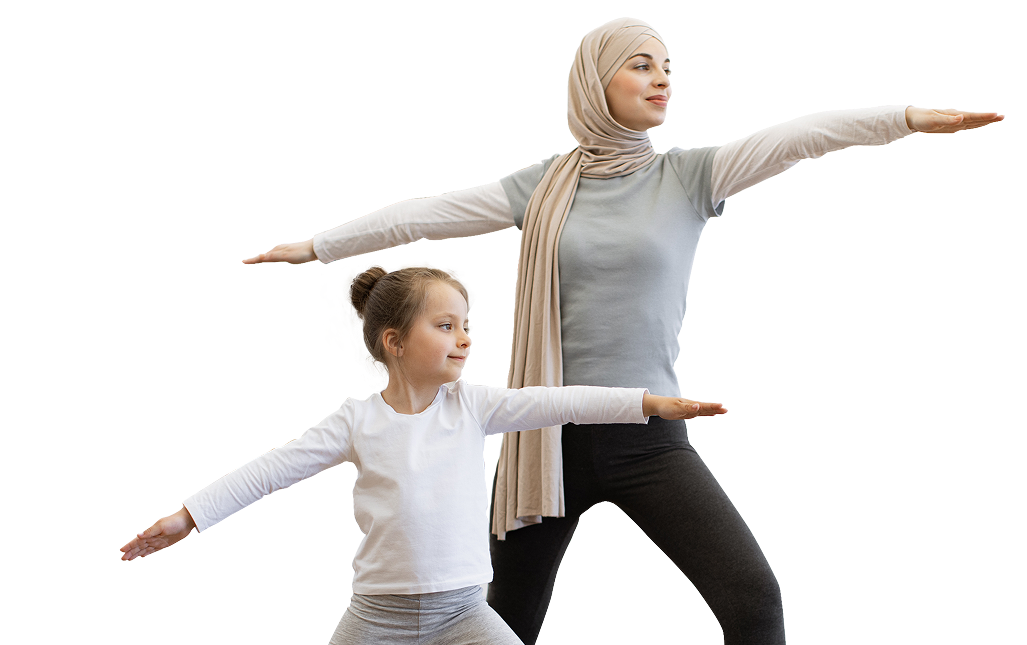Aali Intermediate Girls
Aali Primary Boys
Aali Primary Girls
Aali Primary Intermediate Boys
Abdul Rahman Al-Dakhel Intermediate Boys
Abdul Rahman Al-Nassir Primary Intermediate Boys
Abdul Rahman Kanoo International School
Abdulrahman Kanoo International School
Abu Bakr Al-Siddeeq Primary Intermediate Boys
Abufiras Alhamadani Primary Boys
Abusaiba Primary Boys
Ahmad Al-Fateh Primary Intermediate Boys
Ahmad Al-Umran Secondary Boys
Ain Jaloot Primary Girls
Aisha Umm Al-Moemeneen Primary Girls
Al Ahad Al Zaher Secondary Girls
Al Estiqlal Secondary Girls
Al Fateh Secondary Boys
Al Hedayah Al Khalifiya Secondary Boys
Al Marefa Secondary Girls
Al Ta'Awon Secondary Boys
Al Wadi Primary Boys
Al Wafaa Secondary Girls
Al-Alaa Alhadhrami Primary Boys
Al-Andalus Primary Girls
Al-Belad Al-Qadeem Intermediate Boys
Al-Belad Al-Qadeem Primary Girls
Al-Budaiya Primary Boys
Al-Budaiyya Primary Intermediate Girls
Al-Busaiteen Intermediate Boys
Al-Busaiteen Primary Boys
Al-Busaiteen Primary Girls
Al-Daih Primary Intermediate Girls
Al-Dair Primary Boys
Al-Dair Primary Intermediate Girls
Al-Duraz Intermediate Boys
Al-Duraz Intermediate Girls
Al-Duraz Primary Girls
Al-Farabi Primary Boys
Al-Gudaibia Primary Intermediate Boys
Al-Hidd Intermediate Girls
Al-Hidd Primary Boys
Al-Hidd Primary Intermediate Boys
Al-Hidd Secondary Girls
Al-Hunaineya Primary Girls
Al-Imam Al-Gazali Intermediate Boys
Al-Imam Al-Tabary Primary Boys
Al-Imam Ali Primary Intermediate Boys
Al-Imam Malik Bin Anas Primary Boys
Al-Jaafari Religious Institute
Al-Jabiriyia Secondary Technical Boys
Al-Jasra Primary Boys
Al-Jazeera Primary Boys
Al-Khaleej Al-Arabi Primary Intermediate Girls
Al-Khamis Primary Boys
Al-Khansa Primary Girls
Al-Khawarizmi Primary Boys
Al-Manhal Primary Girls
Al-Monthir Bin Sawa Al-Tamimi Primary Boys
Al-Muharraq Primary Girls
Al-Muharraq Secondary Boys
Al-Mutanabbi Primary Boys
Al-Nabeeh Saleh Primary Girls
Al-Noaim Secondary Boys
Al-Noor Secondary Girls
Al-Nowaidrat Primary Girls
Al-Nuzha Primary Girls
Al-Orouba Primary Girls
Al-Qadsiah Primary Girls
Al-Qayrawan Intermediate Girls
Al-Qudes Primary Girls
Al-Rasheed Primary Boys
Al-Rawdha Primary Boys
Al-Rawdha Primary Girls
Al-Razi Primary Boys
Al-Riffa Intermediate Boys
Al-Safa Primary Girls
Al-Salam Primary Girls
Al-Sanabis Intermediate Girls
Al-Sanabis Primary Boys
Al-Sanabis Primary Girls
Al-Sehlah Primary Girls
Al-Sehlah Primary Intermediate Boys
Al-Shorooq Secondary Girls
Al-Tadamon Secondary Girls
Al-Yarmook Primary Boys
Al-Zallaq Primary Intermediate Girls
Alahlia School
Alamal Special Education Institute
Alfajer School
Alfalah Private Schools – Aali (Girls)
Alfalah Private Schools –Muharraq (Boys)
Alfalah Private Schools –Muharraq (Girls)
Alhekma International School
Aliman School – Boys
Aliman School – Girls
Almahd Day Boarding School (Riffa)
Almahd Day Boarding School (Saar)
Almahd Day Boarding School- Samaheej
Almajd School
Almanar Private Schools
Almustaqbal Primary Girls
Alnaseem International School
Alnoor International School
Alraja School
Alrawabi School
Alsalam School
Alwesam School
Alzallaq Primary Intermediate Boys
Ama International School- Bahrain
American School of Bahrain
Aminah Bint Wahab Primary Girls
Ammar Bin Yaser Primary Boys
Arabian Gulf Pearl School
Arad Intermediate Girls
Arad Primary Boys
Arad Primary Girls
Arad Primary Intermediate Boys
Askar Intermediate Boys
Asma That Alnetaqain Primary Girls
Awal Intermediate Boys
A’Alia School
Badr Al-Kobra Primary Boys
Bahrain Bayan Model School
Bahrain International School
Bahrain Vocational Secondary
Bahraini Indian School
Bait Al-Hekmah Primary Girls
Balqees Primary Girls
Bangladesh School
Bawabat Alma’Ali Private School
Beacon
British School Of Bahrain (Bsb)
Buri Primary Boys
Buri Primary Girls
Busaiteen Intermediate Girls
Canadian School
Capital School
City International School
Creativity Private School -Janabia
Creativity Private School-Manama
Dr.Ghazi Al Gusaybi Secondary Girls
East Riffa Intermediate Girls
East Riffa Primary Boys
East Riffa Primary Girls
East Riffa Secondary Boys
Eastern School
Ebenezer Private School
Fatima Bint Alkhattab Primary Girls
Fatima Bint Asad Primary Girls
French School
Gharnata Primary Girls
Hafsa Um Almoumineen Primary Girls
Hajer Primary Girls
Halima Al-Saadeyya Intermediate Girls
Hamad Town Intermediate Boys
Hamad Town Intermediate Girls
Hamad Town Primary Boys
Hamad Town Primary Girls
Hamad Town Secondary Boys
Hamad Town Secondary Girls
Hassan Bin Thabit Primary Boys
Hawar International School
Hiteen Primary Boys
Ibn Al-Nafees Primary Boys
Ibn Alhaytham Islamic School -Maqsha
Ibn Khuldoon National School
Ibn Rushd Intermediate Boys
Ibn Sina Primary Boys
Ibn Tufail Primary Boys
Indian School – Isa Town
Indian School – Riffa
International School of Creative Science
Isa Town Intermediate Boys
Isa Town Intermediate Girls
Isa Town Primary & Intermediate Boys School
Isa Town Secondary Boys
Isa Town Secondary Girls
Jaber Bin Hayian Primary Boys
Japanese School
Jaw Primary Boys
Jidhafs Intermediate Boys
Jidhafs Primary Boys
Jidhafs Secondary Girls
Jidhafs Secondary Technical Boys
Karrana Primary Girls
Karzakan Primary Boys
Khadija Al-Kubra Intermediate Girls
Khalid Bin Alwaleed Primary Boys
Khawlah Secondary Girls
Malkiya Primary Intermediategirls
Mariam Bint Omran Primary Girls
Middle East Schools
Modern Education School
Modern Knowledge School
Muharraq Secondary Girls
Multinational School- Bahrain
Nadeen School
Nasiba Bint Kaab Primary Girls
National Charter Intermediate Boys
New Millennium School- Manama
Omaima Bint Al Noaman Secondary Girls
Omar Bin Abdul Aziz Primary Boys
Osama Bin Zaid Primary Boys
Othman Bin Affan Intermediate Boys
Pakistan School – Isa Town
Pakistan School – Manama
Pakistan Urdu School
Palms Primary School
Philippine School
Primary Religious Institute
Qalali Primary Boys
Quality Education School -Budaiya
Quality Education School- Manama
Quest School
Qurtoba Intermediate Girls
Rabiaa Al-Adaweyia Primary Girls
Religious Institute
Riffa Views International School
Ruqaya Primary Girls
Saad Bin Abi-Waqqas Primary Boys
Saar Primary Girls
Saar Secondary Girls
Saba Primary Girls
Sacred Heart School - Isa Town
Sacred Heart School – Manama
Safeyia Bint Abdulmuttalib Primary Girls
Safra Primary Intermediate Boys
Safrah Primary Intermediate Girls
Sakeena Bint Al-Hussain Primary Girls
Salahuddeen Alayyoubiprimary Boys
Salmabad Primary Girls
Samaheej Primary Intermediate Boys
Sanad Primary Boys
Sanad Primary Girls
Sar Primary Boys
Sh. Abdul Aziz Bin Mohammed Al Khalifa Sec. Boys
Sh. Abdulla Bin Isa Al-Khalifa
Sh. Isa Bin Ali Al-Khalifa Secondary Boys
Sh. Mohamed Bin Isa Al-Khalifa Primary Boys
Sh. Mohd Bin Khalifa Al-Khalifa Primary Intermediate Boys
Sh.Khalifa Bin Salman Institute Of Technology
Shahrakkan Primary Girls
Shaikha Hessa Girls’ School
Shaikha Moza Bint Hamad Al Khalifa Intermediate Girls
Shaikha Moza Bint Hamad Al Khalifa Primary Girls
Shaikha Moza Bint Hamad Al Khalifa Secondary Girls
Sitra Intermediate Girls
Sitra Primary Boys
Sitra Primary Girls
Sitra Secondary Girls
St Christopher’s School
Sumayia Primary Girls
Talents International & The Infant School – East Riffa
Talents International & The Infant School – Manama
Tareq Bin Zeyad Intermediate Boys
The Asian School – Branch 1 -Umalhassam
The Children'S Academy
The International School Of Choueifat
The International School Of Choueifat- Bahrain
The Modern Vision School
The New Horizon School- Janusan
The New Horizon School- Suqaiya
The New Indian School
Tubli Primary Boys
Tubli Primary Girls
Tulaitela Primary Girls
Tylos School
Um Al-Qura Primary Intermediate Girls
Um Alhassam Primary Boys
Um Ayman Primary Girls
Um Kalthoom Intermediate Girls
Um Salama Intermediate Secondary Girls
Uqba Bin Nefea Primary Boys
Wadi Alsail Primary & Intermediate Boys School
West Rifaa Primary Boys
West Rifaa Secondary Girls
West Riffa Intermediate Girls
West Riffa Primary Girls
Yathreb Intermediate Girls
Zainab Intermediate Girls
Zannoobia Intermediate Girls









